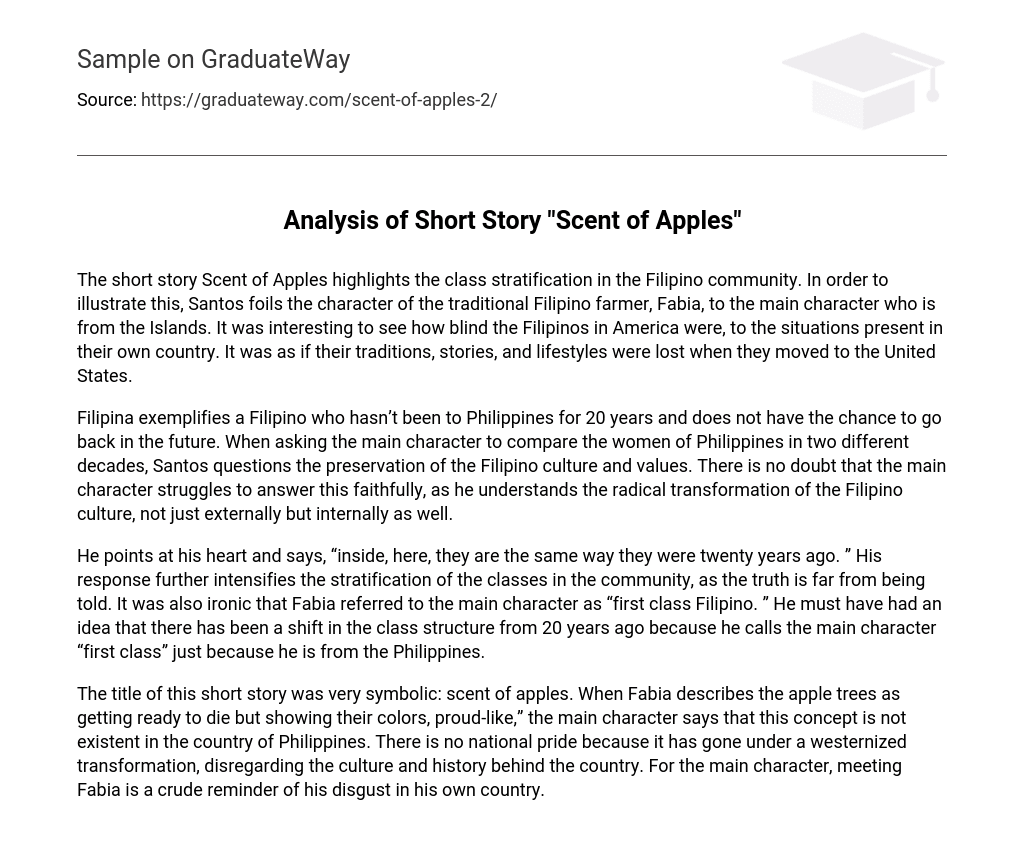The short story Scent of Apples highlights the class stratification in the Filipino community. In order to illustrate this, Santos foils the character of the traditional Filipino farmer, Fabia, to the main character who is from the Islands. It was interesting to see how blind the Filipinos in America were, to the situations present in their own country. It was as if their traditions, stories, and lifestyles were lost when they moved to the United States.
Filipina exemplifies a Filipino who hasn’t been to Philippines for 20 years and does not have the chance to go back in the future. When asking the main character to compare the women of Philippines in two different decades, Santos questions the preservation of the Filipino culture and values. There is no doubt that the main character struggles to answer this faithfully, as he understands the radical transformation of the Filipino culture, not just externally but internally as well.
He points at his heart and says, “inside, here, they are the same way they were twenty years ago. ” His response further intensifies the stratification of the classes in the community, as the truth is far from being told. It was also ironic that Fabia referred to the main character as “first class Filipino. ” He must have had an idea that there has been a shift in the class structure from 20 years ago because he calls the main character “first class” just because he is from the Philippines.
The title of this short story was very symbolic: scent of apples. When Fabia describes the apple trees as getting ready to die but showing their colors, proud-like,” the main character says that this concept is not existent in the country of Philippines. There is no national pride because it has gone under a westernized transformation, disregarding the culture and history behind the country. For the main character, meeting Fabia is a crude reminder of his disgust in his own country.





